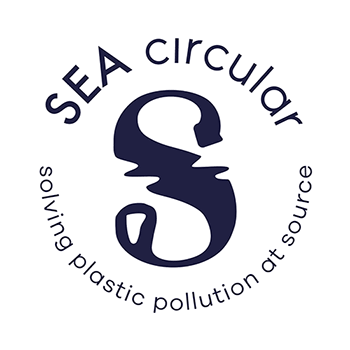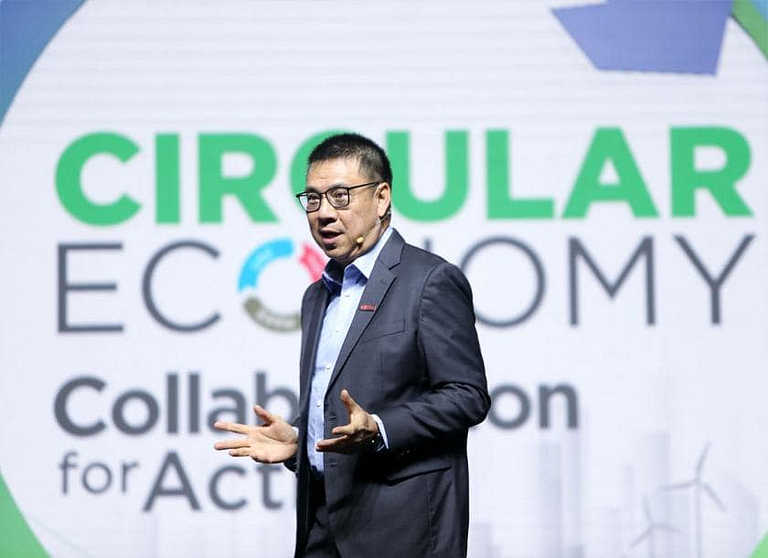
26 August 2019, Bangkok – At the 10th Sustainable Development Symposium, SCG announced that 45 partners from the public, private, non-profit and intergovernmental sectors have banded together to form a network to drive the circular economy.
Throughout South East Asia, growing populations, rising consumption and mounting piles of waste are all inter-connected and makes it urgent for governments and businesses to adopt practices of recycling and waste-management under the concept of the “circular economy”.
The network comprises five global organisations, three government agencies, 29 businesses, eight schools and communities that have pledged to create models in compliance with circular economy principles to maximize resource and solve waste problems from upstream to downstream operations. These network partners will collaborate on tackling ocean waste, raising living standards and managing industrial waste.
Network partners include The World Business Council for Sustainable Development, the United Nations and Thai Chamber of Commerce among non-profit or intergovernmental organisations. Among private sector businesses, Tesco Lotus, CP All pcl, Siam Makro pcl, Central Pattana pcl, FamilyMart, Villa Market JP Co Ltd, Super Cheap Co Ltd, CJ Express, Aeon Thana Sinsap (T) pcl, DHL Thailand, Lazada Express Thailand, Kasikornbank pcl, Thai Beverage pcl, Charoen Pokphand group and Sansiri pcl.
The company said one of the network’s aims would be to push for the circular economy by coming up with solutions for resource maximisation, waste separation as well as proper disposal of waste to ensure resource efficiency throughout the manufacturing and consumption cycle.
SCG president/chief executive officer Roongrote Rangsiyopash said that Thailand produced 28 million tonnes of waste last year and without proper waste management and disposal practices, this waste will leak into the oceans, triggering the loss of marine biodiversity.
SCG has incorporated the circular economy principles into its operations and this includes reducing material use and ensuring durability, upgrading and replacing and, reuse and recycle.
The company converted 310,000 tonnes of industrial waste last year into fuel substitutes. SCG has continued to integrate circular economy principles this year into manufacturing and has set a target to reduce single-use plastic to 20 percent by 2025 from 46pc while increasing the use of recyclable plastic packaging to 100pc by 2025.

news
